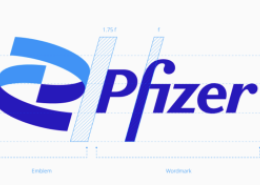Pfizer Presents Data With Novel Investigational Agents In Select Patient Groups With Non-Small Cell Lung Cancer
Novel c-Met/ALK Inhibitor is the First Agent in Clinical Development to Selectively Target Sub-group of NSCLC Patients
(BUSINESS WIRE)--Pfizer announced today results from four studies highlighting clinical data with targeted treatment approaches in patients with non-small cell lung cancer (NSCLC). Data on the company’s oral c-Met and ALK inhibitor (PF-02341066), an investigational agent that selectively targets cancer-causing genes implicated in the progression of many cancers, will be presented at the 45th American Society of Clinical Oncology (ASCO) Annual Meeting in Orlando. Additionally, data on investigational agents PF-00299804 (pan-HER inhibitor), figitumumab (CP-751,871) and axitinib (AG-13736) will also be presented at the meeting.
“Pfizer is committed to improving outcomes for patients with NSCLC,” said Dr. Mace Rothenberg, senior vice president of clinical development and medical affairs for Pfizer’s Oncology Business Unit.
“We are learning that NSCLC is not a single entity but a family of cancers driven by distinct molecular processes. We are using that information to develop treatments that selectively shut down these processes. By knowing which process may be driving a particular patient’s cancer, we move one step closer to matching the right drug, in the right setting, for each patient.”
Lung cancer is the most common cancer worldwide. NSCLC accounts for about 85 percent of lung cancer casesand remains difficult to treat, particularly in the metastatic setting. Nearly 60 percent of NSCLC patients are diagnosed late with Stage IIIB/IV advanced disease. For Stage III/IV NSCLC, the five-year survival rate is only 12 percent.
c-Met/ALK Inhibitor Shows Early Clinical Activity
New study results from an expansion cohort of a Phase 1 study in patients with NSCLC carrying the ALK (anaplastic lymphoma kinases) fusion gene showed early clinical activity with PF-02341066, a dual inhibitor of mesenchymal epithelial transition growth factor (c-Met or hepatocyte growth factor), a receptor commonly altered in human cancers across a variety of solid tumor types, and ALK translocation genes. PF-02341066 is the first agent in clinical development that selectively targets a unique genetic feature of cancer cells, echinoderm microtubule-associate protein-like 4 (EML4)-ALK translocation, present in some NSCLC patients.
In this expansion cohort study, among 19 NSCLC patients who had an EML4-ALK mutation treated with PF-02341066, 10 have had a partial response, with three unconfirmed; the duration of response has ranged from 2+ to 23+ weeks. Additionally, five patients have had stable disease, with the duration of response ranging from 8+ to 40 weeks.
“PF-02341066 represents a new compound that is thought to inhibit two cancer targets, c-MET and ALK. Inappropriate activation of one or both genes can lead to cancer and drug resistance. Our Phase 1 trial was expanded to enroll patients whose tumors had abnormalities in these genes to determine the effect of PF-02341066 against their tumors,” said Dr. Rothenberg. “We are encouraged by the high proportion of patients whose tumors shrank substantially or stopped growing. These data support further study of PF-02341066 for the potential treatment of NSCLC and possibly other difficult-to-treat cancers.”
This expansion cohort was part of a dose-escalation study which enrolled 37 advanced cancer patients with various tumors, including NSCLC, colorectal, pancreatic, sarcoma and anaplastic large cell lymphoma tumors. The maximum tolerated dose (MTD) was 250 mg twice daily. In this study, the most common adverse events were nausea, emesis, fatigue and diarrhea. Three dose limiting toxicities were observed and reversible, including Grade 3 ALT (alanine aminotransferase) increase in one patient at 200 mg/day and Grade 3 fatigue in two patients at the 300 mg/twice daily dose level.2
Phase 2 Results of Irreversible Pan-HER Inhibitor
An ongoing Phase 2 study of PF-00299804, an irreversible, oral, selective pan-HER (human epidermal growth factor receptor) inhibitor, evaluated patients with NSCLC whose tumors have progressed despite at least one chemotherapy treatment and also prior treatment with erlotinib(≤8 week). In pre-clinical studies, PF-00299804 has been shown to block the signaling in both wild type and mutant EGFR NSCLC, including forms which are resistant to reversible HER inhibitors.3
The HER pathway, which includes HER-1, HER-2, HER-3 and HER-4 receptors, plays an important role in human malignancies and mutations.
Fifty-three patients with progressive NSCLC were treated with PF-00299804 (45 mg/day) and enrolled in two study arms: adenocarcinoma (n=47) and non-adenocarcinoma (n=6). In the 43 patients evaluated for response, three patients (7 percent) achieved a partial response and 26 patients (60.5 percent) achieved stable disease ≥6 weeks, as measured by RECIST (Response Evaluation Criteria in Solid Tumors). Additionally, seven patients treated with PF-00299804 experienced clinical benefit, as defined by partial response plus stable disease ≥6 months, including 5 adenocarcinoma and 2 non-adenocarcinoma patients.
In the study, the most common Grade 3 adverse events included skin disorders (15.1 percent) and diarrhea (13.2 percent). Three patients experienced Grade 4 pulmonary embolus/dyspnea, which was deemed possibly treatment-related.
Figitumumab Shows Activity in NSCLC Patients with Squamous Histology
A single-arm extension cohort was conducted to confirm the preliminary findings from a randomized Phase 2 study of 156 patients, which evaluated overall response with figitumumab in combination with carboplatin and paclitaxel in patients with NSCLC.
In the extension cohort, 56 patients with non-adenocarcinoma NSCLC (squamous, large cell, and not otherwise specified) were enrolled and treated with figitumumab (20 mg/kg), plus carboplatin (AUC of 6) and paclitaxel (200 mg/m2). As measured by RECIST, 27 out of 42 squamous cell patients (64.3 percent) demonstrated response. One complete response and 26 partial responses were observed. Among the 26 partial responses, 15 patients had 50-95 percent reduction in tumor size. Maintenance treatment (n=20) with figitumumab resulted in tumor size reductions in two patients. Median progression-free survival (PFS) was 5.7 months for the overall extension cohort, 5.9 months for patients with squamous cell carcinoma and 3 months for patients with large cell/not otherwise specified tumors.
Figitumumab was generally well-tolerated in the extension cohort. The most common Grade 3 and 4 adverse events were hyperglycemia (11 percent), fatigue (7 percent), and neutropenia (5 percent). Hyperglycemia almost always occurred within the first treatment cycle and was generally manageable with standard measures.
Figitumumab, a fully human monoclonal antibody, is a highly specific inhibitor of the insulin growth factor type 1 receptor (IGF-1R) pathway. The IGF-1R pathway is thought to be one of the fundamental signaling pathways that leads to uncontrolled growth and survival of tumor cells, and may represent a resistance mechanism against EGFR inhibitors and other anti-cancer therapies.
Axitinib in Combination with Chemotherapy
Findings from a Phase 1 study of axitinib in combination with paclitaxel/carboplatin or gemcitabine/cisplatin in patients with advanced NSCLC and other solid tumors are being presented at ASCO.
A total of 49 patients were enrolled in the study, including 28 in the axitinib plus paclitaxel (200 mg/m2) and carboplatin (AUC of 6) arm, and 21 patients in the axitinib plus gemcitabine (1,250 mg/m2) and cisplatin (80 mg/m2) arm. Predominant tumor types in the study included NSCLC (34 percent), melanoma, ovarian, and pancreatic cancer (8 percent each).
In the study, 17 patients (34.7 percent) achieved an objective response, including three complete responses (6.1 percent) and 14 partial responses (28.6 percent). An additional 14 patients had stable disease for 8 weeks. Objective responses were observed in patients with the following tumor types: NSCLC (n=6), ovarian (n=3), melanoma (n=3), head and neck, breast, cervical and carcinoid (n=1 each).
The maximum tolerated dose (MTD) of axitinib was 5 mg twice daily, with no apparent overlapping toxicities when combined with the standard chemotherapy regimens. The most common treatment-related adverse events for axitinib combined with either paclitaxel/carboplatin or gemcitabine/cisplatin were hypertension (34.7 percent), diarrhea (30.6 percent) and fatigue (30.6 percent).
Axitinib is an oral and selective inhibitor of vascular endothelial growth factor receptors 1, 2 and 3 (VEGFR 1, 2, 3).Axitinib is an investigational agent and is being studied as both a single agent and in combination with other agents across many tumor types.
About Pfizer Oncology
Pfizer Oncology is committed to the discovery, investigation and development of innovative treatment options for cancer patients worldwide. Our robust pipeline consists of 21 biologics and small molecules in clinical development across four scientific platforms – anti-angiogenesis, signal transduction, immuno-oncology, and cytotoxic potentiators. Pfizer Oncology has over 200 clinical trials, including robust Phase 3 clinical trial programs in renal cell carcinoma, prostate cancer, non-small cell lung cancer, metastatic breast cancer, colorectal cancer, and hepatocellular carcinoma.
By working collaboratively with academic institutions, researchers, governments, and licensing partners, Pfizer Oncology strives to transform treatment by targeting the right drug for the right patient at the right time.
For more information please visit www.Pfizer.com.
Pfizer Inc: Working together for a healthier world™
Founded in 1849, Pfizer is the world's premier biopharmaceutical company taking new approaches to better health. We discover, develop, manufacture and deliver quality, safe and effective prescription medicines to treat and help prevent disease for both people and animals. We also partner with healthcare providers, governments and local communities around the world to expand access to our medicines and to provide better quality health care and health system support. At Pfizer, more than 80,000 colleagues in more than 90 countries work every day to help people stay happier and healthier longer and to reduce the human and economic burden of disease worldwide.
DISCLOSURE NOTICE: The information contained in this release is as of May 30, 2009. Pfizer assumes no obligation to update any forward-looking statements contained in this release as the result of new information or future events or developments.
This release contains forward-looking information about the product candidates figitumumab (CP-751,871), axitinib, PF-00299804 and PF-02341066, including with respect to their potential benefits and potential indications, that involves substantial risks and uncertainties. Such risks and uncertainties include, among other things, the uncertainties inherent in research and development; decisions by regulatory authorities regarding whether and when to approve any drugapplications that may be filed for any such indications as well as their decisions regarding labeling and other matters that could affect the availability or commercial potential of any such indications; and competitive developments.
A further description of risks and uncertainties can be found in Pfizer’s Annual Report on Form 10-K for the fiscal year ended December 31, 2008 and in its reports on Form 10-Q and Form 8-K.
Pfizer Inc
Media:
Jack Cox, 212-733-5017
or
Investors:
Jennifer Davis, 212-733-0717








